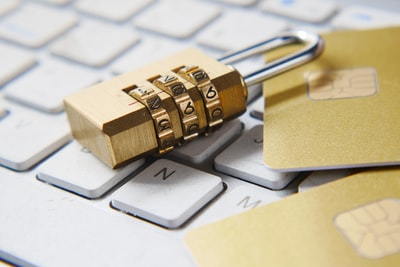In an age where technology pervades every aspect of our lives, safeguarding our personal information has become an utmost concern. This concern is perhaps even more acute when it comes to novelists, whose creativity relies on a deep wellspring of experiences, emotions, and observations.
Creating fictional worlds that captivate readers requires an incredible degree of vulnerability, but that vulnerability should not extend to their digital communication. As aspiring writers seek to uncover the secrets to successful storytelling, it is equally imperative for them to be equipped with the best practices for secure email.
By fortifying their online interactions, novelists can share their work with confidence, knowing that their ideas will remain protected from the prying eyes of cybercriminals. Novelists communication secrets lie not only in the words they choose, but also in the steps they take to safeguard their digital communication.
Communication security tips for authors, particularly those dabbling in matters of mystery and intrigue, are often a curiosity that remains shrouded in enigmatic whispers. For novelists, protecting the delicate strings of their words from prying eyes is both a necessity and an art.
In a world where every keystroke can be intercepted, authors must don the cloak of secrecy to safeguard their literary endeavors. Unraveling the secrets of communication security might seem daunting at first, but fear not, dear writers, for an arsenal of tips and tricks awaits to shield your prose from unwanted scrutiny.
Let us embark on this clandestine journey together, navigating the labyrinth of encryption, passcodes, and digital balaclavas. But before diving into the realm of elusive protection, we must first address the fundamental truth that the key to safeguarding communication lies not just in meticulous technical fortification, but also in the cultivation of a vigilant mind—alert to the ever-changing tides of deception that swirl around the universe of words.
The literary landscape, like an enigma wrapped in a riddle, demands an intricate dance between secrecy and revelation, a symphony of hidden layers and tantalizing revelations. As novelists, we must embrace the power of the unknown, grapple with the shadows, and master the art of subterfuge to weave our tales in blissful solitude.
So buckle up, dear authors, for the journey ahead promises to be a wild ride—a rollercoaster through the realms of cryptographic enigmas, clandestine rendezvous, and trusty typewriters, where the words of great mysteries will find their sanctum amidst the chaotic symphony of communication security.
Table of Contents
Understanding the Importance of Secure Communication Channels
Novelists need to safeguard their communication to protect their creative ideas and works in progress. In the digital age, where hacking and data breaches are prevalent, understanding the importance of secure communication channels is crucial.
Encryption can provide some level of protection for authors by encrypting their emails, manuscripts, and other written correspondence. However, relying solely on technology is not sufficient.
Authors must also be aware of social engineering, as it can be used to breach security. Ultimately, it is up to each novelist to take proactive measures to safeguard their communication.
Encryption Tools for Protecting Writer’s Work and Ideas
In today’s world, where privacy is increasingly scarce, it’s essential for writers to protect their communication. Encryption tools provide a shield for authors, ensuring the confidentiality of their work and ideas.
These tools not only safeguard manuscripts and outlines from unwanted eyes but also enable writers to collaborate with trusted partners without the risk of theft or plagiarism. As online writing communities and digital publishing platforms continue to grow, authors must take proactive steps to secure their intellectual property.
Encryption tools offer a crucial defense against cyber threats, allowing writers to focus on their craft instead of worrying about the vulnerability of their communication channels. By using these tools, writers can protect their ideas and preserve the integrity of their work in an ever-expanding digital world.
Securing Online Platforms to Prevent Unauthorized Access
Novelists must safeguard their communication in the digital age. Online platforms pose a significant risk of unauthorized access to their work.
To prevent theft or compromise, they need to take proactive measures. One effective measure is using encrypted messaging apps.
These apps ensure that only intended recipients can read the messages. Novelists should also be cautious about sharing their work online.
While feedback from fellow writers is valuable, precautions must be taken to avoid theft or plagiarism. Regularly updating passwords and using strong, unique ones for each platform is crucial.
By following these steps, novelists can protect their ideas in an increasingly digital world.
Best Practices for Password Management and Account Security
In the ever-changing digital world, where data breaches and cyber attacks are common, novelists, like everyone else, need to be careful in protecting their communication and privacy. Online platforms and social media make it easier for authors to connect with readers, but they also create vulnerabilities that may be exploited by malicious individuals.
To ensure the security of their work, novelists should follow best practices for managing passwords and securing their accounts. This includes using strong and unique passwords for each online account, enabling two-factor authentication whenever possible, and regularly updating passwords.
Authors should also be cautious about phishing attempts and avoid sharing sensitive information over unsecured networks. In this fast-paced and interconnected world, novelists must prioritize privacy solutions to preserve the integrity of their craft.
Protecting Against Hacking and Cyber Attacks
In the fast-paced digital age, where technology constantly evolves and cyber threats are increasingly sophisticated, it is highly important for authors to ensure secure communication. With the rise of hacking and cyber attacks, authors must take proactive steps to protect their work, ideas, and creative process.
The consequences of a breach can be devastating, from stolen manuscripts to leaked plotlines and even identity theft. But how can writers keep themselves safe in this ever-changing landscape? One way is to use encryption methods, such as secure messaging apps and virtual private networks (VPNs), which can help hide communications from prying eyes.
Secondly, authors should regularly update and strengthen passwords, use two-factor authentication when possible, and avoid using public Wi-Fi networks. It is also crucial for authors to be aware of social engineering tactics, like phishing scams, and stay informed about the latest cybersecurity trends.
In this uncertain age, protecting communication has become a necessity for novelists. It is not only about safeguarding their work; it is also about preserving their craft and the cherished stories they want to share with the world.
Privacy Concerns and Legal Considerations for Authors
With hackers and surveillance lurking in the digital age, writers face unique challenges in protecting their communication. As authors exchange ideas, drafts, and feedback, privacy becomes crucial.
But how can writers keep their messages confidential? This section explores privacy concerns and legal considerations for authors, offering strategies for secure communication. From encrypted messaging apps to password-protected cloud storage, the options are endless.
However, navigating privacy tools can be overwhelming for novelists. Balancing protection and convenience requires careful thought.
Are there legal implications to using certain encryption methods? How can writers safeguard their intellectual property without sacrificing efficiency? Unraveling these secrets will empower authors to navigate the digital world confidently and protect their communication.
Cleanbox: Streamlining Secure Email Practices for Novelists
Secure email practices are crucial for novelists who frequently communicate with editors, agents, and other stakeholders in the publishing industry. Cleanbox offers a solution that streamlines their email experience, making it not only efficient but also secure.
By leveraging advanced AI technology, Cleanbox sorts and categorizes incoming emails, identifying potential phishing attempts and harmful content. This ensures that novelists can confidently open messages without the worry of falling victim to cyberattacks.
Additionally, Cleanbox ensures that priority messages from important contacts are easily distinguished and highlighted, avoiding any missed opportunities or critical information getting buried in the clutter. With its revolutionary approach, Cleanbox provides novelists with the peace of mind necessary to focus on their writing while offering optimal email organization and protection.
Frequently Asked Questions
Safeguarding communication is crucial for novelists to protect their ideas, intellectual property, and the privacy of their discussions with agents, editors, and collaborators.
Novelists can safeguard their communication by using encrypted messaging apps, secure email services, and password-protecting their documents. It is also advisable to sign non-disclosure agreements (NDAs) with agents and collaborators.
Popular encrypted messaging apps suitable for novelists include Signal, Telegram, Wickr, and WhatsApp (with end-to-end encryption enabled). These apps ensure that conversations are protected from eavesdropping and unauthorized access.
Yes, secure email services like ProtonMail, Tutanota, and Hushmail offer end-to-end encryption, preventing unauthorized access to the content of emails. Using such services adds an extra layer of security for novelists.
Password-protecting documents provides an additional safeguard against unauthorized access. Novelists can use tools like Microsoft Word, Adobe Acrobat, or third-party software to set passwords for their sensitive files.
Signing non-disclosure agreements (NDAs) ensures that agents, editors, and collaborators are legally bound to keep the novelist’s ideas and discussions confidential. This protects the integrity of the work and prevents unauthorized use or disclosure of sensitive information.
Overview
In the digital age, where communication is increasingly reliant on email, the security of sensitive information shared among novelists has become a pressing concern. As the literary world embraces the convenience and efficiency of electronic correspondence, it is crucial for writers to prioritize the protection of their intellectual property.
While the intricacies of secure email may seem daunting to some, understanding and implementing best practices can provide novelists with peace of mind. From utilizing strong and unique passwords to encrypting messages, there are numerous steps that can be taken to safeguard confidential material from prying eyes.
It is also important to remain vigilant against phishing attempts and to regularly update security software to stay one step ahead of potential threats. Additionally, employing secure email providers and utilizing end-to-end encryption tools can offer an extra layer of protection.
By following these guidelines and staying informed about the latest advancements in email security, novelists can safeguard their work, maintain confidentiality, and focus on what truly matters – their art.







 in Wyoming
in Wyoming